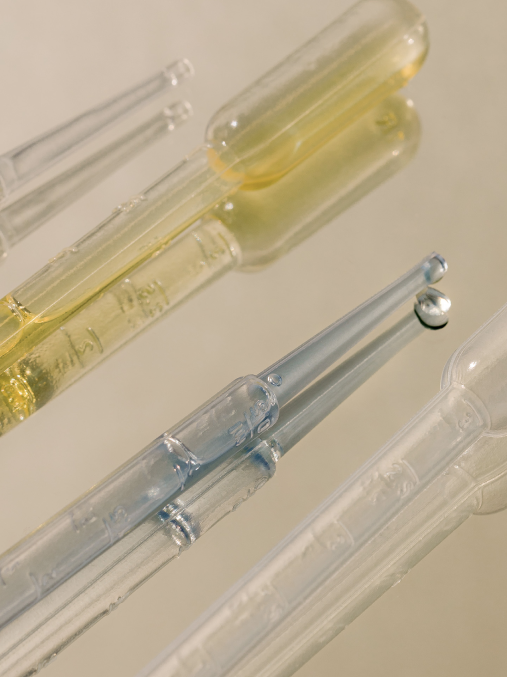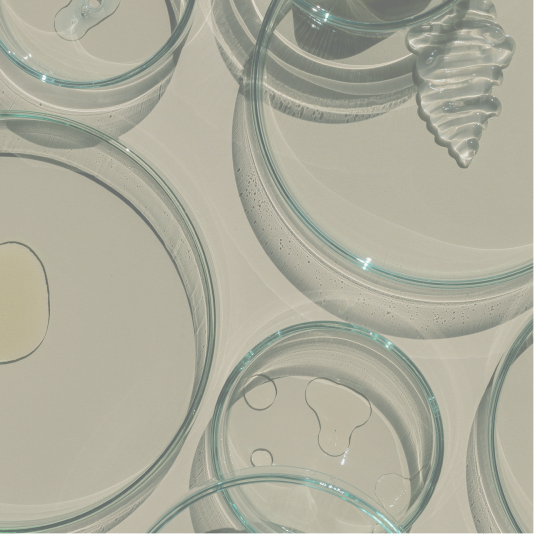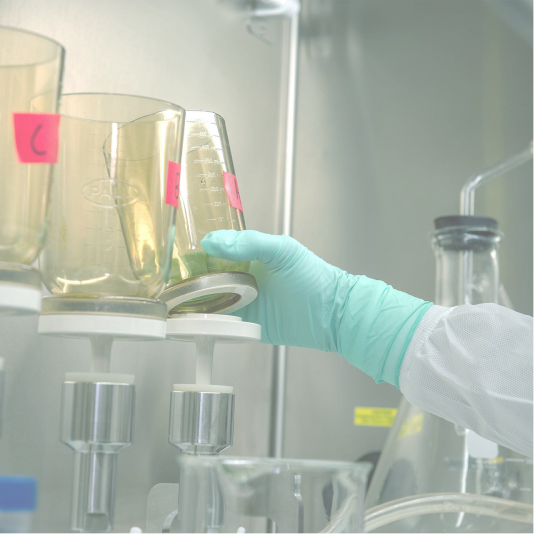
Inspired by tradition. Backed by science.
Notable products are formulated with cutting-edge natural ingredients that have been studied scientifically and often have a rich history of use in Ayurvedic or Traditional Chinese practices. We select these ingredients only after performing a rigorous meta-analysis of the scientific data in collaboration with industry scientists. Our evidence-backed dietary supplement formulations are designed to exert acute effects and work quickly, sometimes in minutes or hours, with additional benefits accruing in the following days.
Notable is proud to adhere to the most stringent quality control standards. Our products are manufactured in a state-of-the-art facility in the United States that is both NSF/cGMP certified and has been inspected by the FDA. Each batch of Notable products undergoes a rigorous biochemical analysis to ensure purity, potency, and absence of contaminants. When you choose Notable, you can trust that you're getting the highest quality, science-backed products on the market.
Ingredients & Studies

Sabroxy®
Sabroxy® is a standardized extract prepared from the dried bark of the Indian trumpet tree (Oroxylum indicum) and contains a minimum of 10% Oroxylin A. Sabroxy has been shown to significantly enhance motivation & focus in human studies. This may be due to Oroxylin A’s ability to inhibit dopamine reuptake, leading to greater concentrations of dopamine in the brain. Oroxylin A may also increase brain-derived neurotrophic factor (BDNF) in the brain, which supports neurogenesis, protects against neurotoxicity, & promotes memory. In addition to its powerful benefits, Sabroxy can also help balance inflammation levels, support skin health, and regulate the immune system.
Relevant studies
Chen et al. Biochemical Pharmacology. 2022
Sajeev et al. Biomolecules. 2022
Wu et al. Frontiers in Pharmacology. 2022
Lopresti et al. Frontiers in Aging Neuroscience. 2021
Pondugula et al. Natural Product Communications. 2021
Pondugula et al. Plos One. 2021
Lu et al. Phytotherapy Research. 2016
Siddiqui et al. Journal of Research and Opinion. 2012
Dev et al. Pharmacognosy Journal. 2010
Kim et al. Neurobiology of Learning and Memory. 2007

Polygala Tenuifolia
Polygala Tenuifolia, also known as Yuan zhi, is an herb from traditional Chinese practices. Recently, Polygala Tenuifolia has become the subject of academic & scientific research due to its nootropic effects. Polygala Tenufolia supports motivation & focus by both inhibiting monoamine reuptake & inhibiting monoamine oxidase. This may increase concentrations of dopamine, norepinephrine, & serotonin in the brain. Polygala also supports memory by inhibiting acetylcholinesterase, the enzyme that breaks down acetylcholine, a neurotransmitter associated with learning & memory. Polygala also may increase BDNF & nerve growth factor (NGF) expression which further promotes optimal memory and contributes to Polygala’s neurogenic & neuroprotective effects.
Relevant studies
Jiang et al. Journal of Ethnopharmacology. 2021
Deng et al. Pharmaceutical Biology. 2020
Jin et al. European Neuropsychopharmacology. 2015
Jin et al. Progress in Neuro-Psychopharmacology and Biological Psychiatry. 2014
Li et al. Evidence-Based Complementary and Alternative Medicine. 2014
Chen et al. Evidence-Based Complementary and Alternative Medicine. 2011
Hu et al. Journal of Pharmacy and Pharmacology. 2011
Sun et al. Journal of Southern Medical University. 2009
Hu et al. Die Pharmazie-An International Journal of Pharmaceutical Sciences. 2009
Shin et al. Journal of Neuroscience Research. 2008
Park et al. Journal of Neuroscience Research. 2002

enxtra®
enxtra® is an award-winning proprietary extract of Thai ginger (Alpinia galanga) that has been proven in human studies to quickly improve mental alertness & attention. Specifically, enXtra® increases dopamine levels by inhibiting dopamine reuptake. enXtra® also strategically modulates cholinergic & adenosine signaling to support memory & reduce fatigue. In all clinical studies, enXtra® has been proven safe with no impact on heart rate, blood pressure, or sleep.
Relevant studies
Shanmugasundaram. Journal of Complementary and Integrative Medicine. 2022
Srivastava et al. Journal of the American College of Nutrition. 2021
Sivanandan et al. Advances in Biological Chemistry. 2018
Srivastava. Open Access Journal of Clinical Trials. 2018
Srivastava et al. Journal of the American College of Nutrition. 2017
Srivastava et al. Journal of the American College of Nutrition. 2017
Saha et al. Indian Journal of Experimental Biology. 2013
Kaushik et al. Journal of Chinese Integrative Medicine. 2011
Singh et al. Journal of Ethnopharmacology. 2011

Ginkgo Biloba
Renowned as one of the top herbs for brain health Ginkgo (Ginkgo biloba) synergizes with the dopamine-boosting ingredients in Notable Focus by increasing levels of acetylcholine & norepinephrine. Research shows that Ginkgo inhibits the acetylcholinesterase enzyme and norepinephrine reuptake to support aspects of memory & attention respectively. In addition, Ginkgo is packed with neuroprotective nutrients that protect the brain by reducing oxidative stress & enhancing cerebral blood flow.
Relevant studies
Liu et al. Frontiers in Pharmacology. 2020
Ude et al. Clinical Pharmacokinetics. 2013
Kehr et al. International Psychogeriatrics. 2012
Masahyekh et al. Functional Neuroradiology. 2010
Fehske et al. Pharmacological Research. 2009
Ahlemeyer et al. Cellular and Molecular Life Sciences. 2003
Das et al. Pharmacology Biochemistry and Behavior. 2002

L-Theanine
L-Theanine is one of the main active constituents found in green tea. L-Theanine may promote attention & relaxation by supporting alpha-1 wave generation. L-Theanine also may regulate stress & jitters by promoting GABAergic neurotransmission & blocking glutamate receptors. In addition to these mechanisms, L-Theanine may also increase BDNF expression which contributes to its neuroprotective benefits.
Relevant studies
Williams et al. Plant Foods for Human Nutrition. 2020
Hidese et al. Nutrients. 2019
Tian et al. Brain Research. 2013
Wakabayashi et al. Psychopharmacology. 2011
Kakuda et al. Pharmacological Research. 2011
Kimura et al. Biological Psychology. 2007
Nathan et al. Journal of Herbal Pharmacotherapy. 2006
Song et al. The Korean Journal of Nutrition. 2003
Song et al. Korean Journal of Family Medicine. 2002


